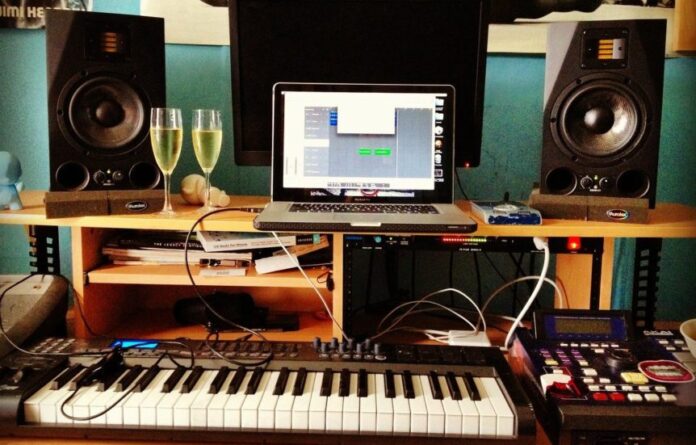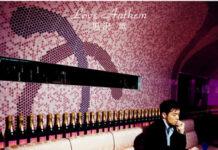Recording at home has seen the start of many successful careers in music, and with the advance in technology, it’s never been easier to put together a great-sounding record in the comfort of your own surroundings. Some of the biggest music stars of the day have started as just regular people, making music at home and posting it on YouTube. They had great voice, plenty of talent and good music recording tips. Because honestly, if you do bad at recording your voice or your music, you can ruin your whole idea and your voice can sound terribly bad. If these stars of today made mistakes when recording their own voice and sound, they wouldn’t have become the stars. Imagine if Justin Bieber sounded poorly on the videos – he wouldn’t have his career today. Even if his voice did sound great live, a bad recording could have ruined him. Well, if you want to be a star, you need some great recordings that you can currently make only at home. But how to do that? How to make recordings that will make you the next star? Avoid these mistakes for Home Music Recordings:
Consider the room/space you are using
We’ll get to soundproofing in a moment, but the fact is, some rooms just can’t be made right for the occasion. Start by making a smart choice with regards to space and isolation capabilities, and move from there. For example, your bathroom would probably be a bad choice of space because of all the echo and possibilities for sound distortion. It’s really simple to think that your voice is the most important thing and that your mixing abilities are too. In fact, how your record is the most important element. You need to choose a good room. However, recording at home is not so easy because you probably live with someone and you have limited options in regards to rooms. You probably have:
- Your bedroom
- Your bathroom
- Your Kitchen
- Your living room
And maybe a room or two as a bonus. Picking a wrong one can ruin your voice sound and it can make your recording bad. The room that’s the most convenient for you to record in is most likely not the room that you should use. The more reverb your instrument has, the less it will sound like your voice is there for the listener. If your room is very reverbant, your voice will sound far away and not so personal. This is not what you want. You want the listener to feel like you are next to them. Room reflections can cause your voice to sound unnatural and fake. This is why you really need to test your rooms and see where your voice sounds the most natural and personal.
“Use a small or a medium room where there’s a lot of stuff in it – big and soft stuff like beds, pillows, rugs and so on. These will absorb the sound. Avoid rooms with a lot of windows or hard surfaces. Case in point – kitchen and bathroom, not a good choice,” explains Tim Simson, a writer at Academized.
Soundproof the room
Now, if you have a home studio, this is much easier to do, but the reality is most people are recording in a bedroom or living space which is not designed to keep sounds out. However, by taking simple steps such as closing all windows and doors, and removing objects such as phones which can make unwanted sounds, you’ve made the first step to creating a decent environment for your production. You can create that classic triangle booth for the vocals or make something similar with what you have. This isn’t easy but it’s necessary. Make sure that you haven’t soundproofed too much. The objects should absorb the sound and make it feel more full and on point but they shouldn’t make it sound muffled and bad. Test several times to get the right soundproofing. Make the room free of all extra sounds. It shouldn’t be near a loud area – for example, the road where you can hear cars or somewhere where a lot of children play. Microphones can easily pick up on these extra sounds and make your recordings sound bad. Eliminate all of the phones, television or anything else that can make a surprising sound and ruin your recording.
Avoid distractions- Home Music Recordings
Recording from home is working from home, so the same rules apply. Try to remove as many distractions and temptations as possible so as to remain focused on the task at hand. Get yourself in a ‘work mindset’ and clear your schedule so you are free from interruptions and you can let your creativity run free. Put your phone on an airplane mode or shut it down completely, make sure that all of the devices are muted so that they don’t distract you, turn off the TV and let people know that you are working and that they shouldn’t distract you in any way.
Isolate amps- Home Music Recordings
If hooking up guitars, your amps are a vital piece of the sound, but a lot of that sound can be lost through the floor or absorbed into the carpet, creating an unwanted muffled effect. Place your amps on a stand or innovate with a crate of some kind, ensuring that you get the cleanest sound possible. Deep bass tones get absorbed so easily so you should really do something with your amps. For example, you can place the cab on a stand – even if it’s not the official stand for amps. Use a crate or a box – this will reduce the absorption and you will get a better sound. You should also make sure to take secondary feed from the direct output of the amp at the same time which will give you two different versions of the same recording and you can later decide which one is better and mix them and blend them inside the program. This gives you more control over the sound and the end product. Drape a duvet or a blanket that’s heavy over the amp and the mic and make sure it’s not touching the mic. This will both reduce the room reflections and you can record the louder parts without disturbing your neighbours.
Use software where available- Home Music Recordings
Sometimes hardware can be too ‘big’ for the purpose, and by this we mean in sound as well as in physical size. Think about drums, for example, which not only consume a large amount of space, but can totally take over the sound if in a smallish room. Software programs which give you the opportunity to sample drums and bass sound so realistic these days that you can confuse them for the same thing. This may not placate the traditionalists, but you have to put practicality over core beliefs when recording in a place that is not designed for it.
Software programs can give you an element of control which is hard to achieve with hardware, and then you have added features such as controllable bleed and customization, which are great tools for mixing.
Don’t go too loud
This is a typical mistake: cranking up the amps and producing a wall of noise that is then very difficult to be mastered later. Keep levels clean and err on the lower side.
Use a vocal-specific mic
The wrong equipment can seriously hamper the recording process, and it often starts with the mic. For recording vocals, a vocal-specific mic that suits the singing style is essential, and reduces the need for serious compression in cutting vocals through the music.
Speakers off, mics on – Home Music Recordings
The rule here is to avoid feedback at all costs, unless you really want it to create a deliberate wall of sound. In a recording studio, these two pieces of equipment will be isolated from each other, but in a home recording environment, everyone makes the mistake of not turning speakers off before the mics go on every now and again. If your speakers aren’t blessed with a feedback protection feature, it could be the end of them too.
Don’t overuse the effects
This is a common beginner mistake as some think that this makes the track sound more ‘professional’. The reality is that is can make the sound cluttered and the various components sometimes indistinguishable, especially if too much reverb is employed.
The best piece of advice I could offer to those starting out is begin your recording as cleanly as you can. You can add effects later if you want, but keep it crisp from the off and work from there.
Know when to leave it
Perfectionism is not usually a musician’s best friend. And the problem when you are recording at home is that there is usually no limit to how long you can spend tweaking stuff and getting it exactly as you want it. The benefit of booking a studio is that it’s finite – when your time is over it’s over. This can actually be a good thing. Know when it’s done!





